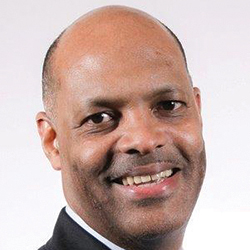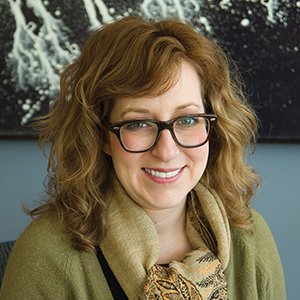Pointers for an industry career
This is the first in a series of interviews with Kenneth I. Maynard of Takeda Pharmaceuticals International Inc. about what it takes to launch and propel a career in the pharmaceutical industry. Maynard previously worked for Sanofi, Aventis Pharmaceuticals and Harvard Medical School. He is a member of the National Institutes of Health Common Fund’s external scientific panel for the Broadening Experiences in Scientific Training program. This Q&A with ASBMB Today’s executive editor, Angela Hopp, has been edited for length, style and clarity.
 Kenneth Maynard
Kenneth Maynard
What tips do you have for students interested in a pharmaceutical industry career?
Network, network, network. You need to learn as much as you can about the pharmaceutical industry and the plethora of available opportunities. Speak with as many people as you can to get to know them and what they do in any pharma company. This helps to understand this vast area.
Know yourself. Knowing what it is that you are passionate about and what role you wish to play in this area is critical. Based on my own experience and on what I know of the pharma industry today, it is best to get trained in academia as long as you possibly can, depending on the amount of responsibility that you want to have in industry. For example, it would be difficult to work your way up from a bench scientist to become head of a disease area in a big pharma company. If you wish to be head of a drug discovery unit or head of a therapeutic area, then you’re probably better off transitioning from a position as head of a department or chief of a clinical service, because it brings a certain amount of experience and seniority. If you do not wish to be a manager but to remain at the bench doing basic science, research assays, animal models and such, it would be fine to transition out of academia with a master’s degree or a newly obtained Ph.D. If you want to be a group leader, I’d say transition after you’ve achieved a junior faculty instructor or assistant professor position. Think carefully about where to position yourself and when to make that transition.
Which skills, besides scientific ones, are most important for career advancement in industry?
Anyone who has obtained a Ph.D. will have gathered various skills along the way that are important for career advancement in the pharmaceutical industry.
The most obvious of these is written and verbal communication skills. The very best communicators are able to write and speak so effectively that they are able to explain, in a clear and concise manner, concepts and information that are complicated and sometimes not yet codified into law. We can be exceptional communicators if we can provide clarity on topics to people who are outside their field of expertise or who are experts in the field.
Linked to effective communication is leadership skills. John C. Maxwell, the No. 1 global leadership guru of 2016 according to the Global Gurus List of Top 30 Global Leadership Experts, describes leadership as “influence, nothing more, nothing less.” Whether we help colleagues develop their own ideas for experiments, lead small lab journal clubs, mediate large group discussions, or facilitate panels at meetings or conferences, we are developing important teaching, mentoring, coaching and leadership skills of influence.
Another skill acquired is that of self and project management, which requires effective work habits and organizational skills. Once we are given carte blanche to pursue a new area of endeavor that has not been studied previously, we soon find that we somehow need to consume a lot of new information, frequently unsupervised, and then identify unanswered questions and prioritize and evaluate them. Once we have decided the questions to which we plan to find answers, we need to set goals and put tasks in place, including learning techniques to help us address the questions. Because this process cannot continue ad infinitum, we also need to set up timelines in which to accomplish these tasks. We soon learn that whatever time we set aside to perform them is vastly inadequate and probably needs to be doubled, so amid all of this planning we learn to be flexible and use prioritization as a tool to maximize our time spent on performing important and urgent tasks and delegating unimportant and nonurgent tasks. As much as there is a timeline in our academic pursuits, the impact of time in the pharmaceutical industry is even more pronounced, since patients need medicines now. The process from idea to drug continues to increase, so this aspect continues to get worse over time. This skill therefore becomes more and more important in terms of meeting deadlines.
What are the best ways to find jobs in industry for those just coming out of academia?
More from this series
Part 2: Pointers for those curious about careers in industry
Part 3: Pointers for those curious about careers in industry
There is nothing to replace doing the grunt work of seeking opportunities through online searches and reviewing professional journals that typically have jobs advertised. Some professional societies have electronic job boards online, send regular emails listing job opportunities or host job fares at annual conferences, with capacity for speed dating sometimes available.
By far I have found that the best way is through networking with people who work in the pharmaceutical industry. The ideal situation is to have someone bring an opportunity to your attention even before it hits the internet for general consumption. That requires more than just networking but actually developing a relationship with people in the industry who are willing to take the time to make you aware of such opportunities. For that to happen, they will at least need to be convinced that you are a person of value and would be good fit for their company. This is unlikely to occur by simply giving someone your business card.
Pharma companies sometimes approach senior academic investigators with whom they have productive existing relationships. Thus, these key individuals may sometimes know about open positions in companies.
What are some common mistakes people make while interviewing for jobs in industry?
As much as you are being interviewed by the company, they expect that you know who they are, what they do and what drives you to join them. This will not be the case if you are not prepared by knowing the company, such as its key assets, areas in which it works or has products, its culture and what is important to it, and its recent important announcements to the public. These can be found easily on companies’ websites or in publicly available annual reports if they are larger companies, but may be more difficult to find if they are small biotech or startup companies.
Once you are fully aware of the company, and even if you were not able to find much on the internet, not asking about or realizing that they may have various positions for which you may be an eligible candidate or not being flexible enough to consider these other opportunities is a potential shortfall. Moreover, asking questions that indicate to the interviewer your insights into the company also may help you gain valuable information that may help you to understand what it is about that position or company that could help you to make your own decision in the event that you get multiple offers from various companies.
Understand that the pharmaceutical industry is one of the most highly regulated industries in the world and employees must live by codes and standards. This impacts the way one’s communication and even dress code could negatively inform an interviewer about the candidate’s capacity to adapt to the environment. More and more companies and recruitment services are examining not only LinkedIn but also the Facebook pages of potential employees to determine suitability.
What are they looking for? What will they find there?
Although you have submitted your CV or résumé online or to a recruiter, it is possible that some interviewers may not have received it or may not have taken it to the interview because they are running in between meetings, so you need to take extra copies just in case. For this purpose, among others, it is better to have a two- or three-page résumé than a 25-page CV and corresponding length bibliography.
Be prepared to articulate succinctly what unique skills and assets you, the applicant, bring to the position based on your prior position(s) and experience(s). Once you make it past the screening process, many of the candidates look similar on paper. Your unique skills and experiences are what set you apart from the other candidates, and you want to be clear about that and not have them guess at what it might be. This is where that elevator speech will be useful.
Understand at what stage of the application and interviewing process salary and compensation packages may be discussed. This is typically not done at the first telephone interview; however, being ready to have the discussion, just in case, is to be better prepared.
Enjoy reading ASBMB Today?
Become a member to receive the print edition monthly and the digital edition weekly.
Learn moreFeatured jobs
from the ASBMB career center
Get the latest from ASBMB Today
Enter your email address, and we’ll send you a weekly email with recent articles, interviews and more.
Latest in Careers
Careers highlights or most popular articles

Grad students: Get to know your program coordinator
They provide advice about interviews and admissions, curriculum, degree requirements, graduate program policies and information, campus services and more.

Upcoming opportunities
Molecule of the year nominations are due Friday! Plus: A new Finding the Funds webinar and LRD seminar are coming up later this month.

Consider an undergraduate summer research internship in government
Our careers columnist offers a rundown of agencies that can provide you with a couple of months of lab experience.

Upcoming opportunities
Putting ASBMB conferences on your radar! Plus: Award nominations are due Friday.

Upcoming opportunities
Putting ASBMB conferences on your radar! Plus: Award nominations are due Friday.

Retiring a research lab
Careers columnist Courtney Chandler talks to Art Spector, a former principal investigator, about making a graceful exit from the bench.

